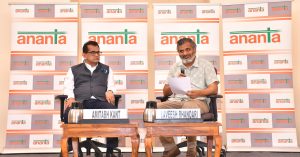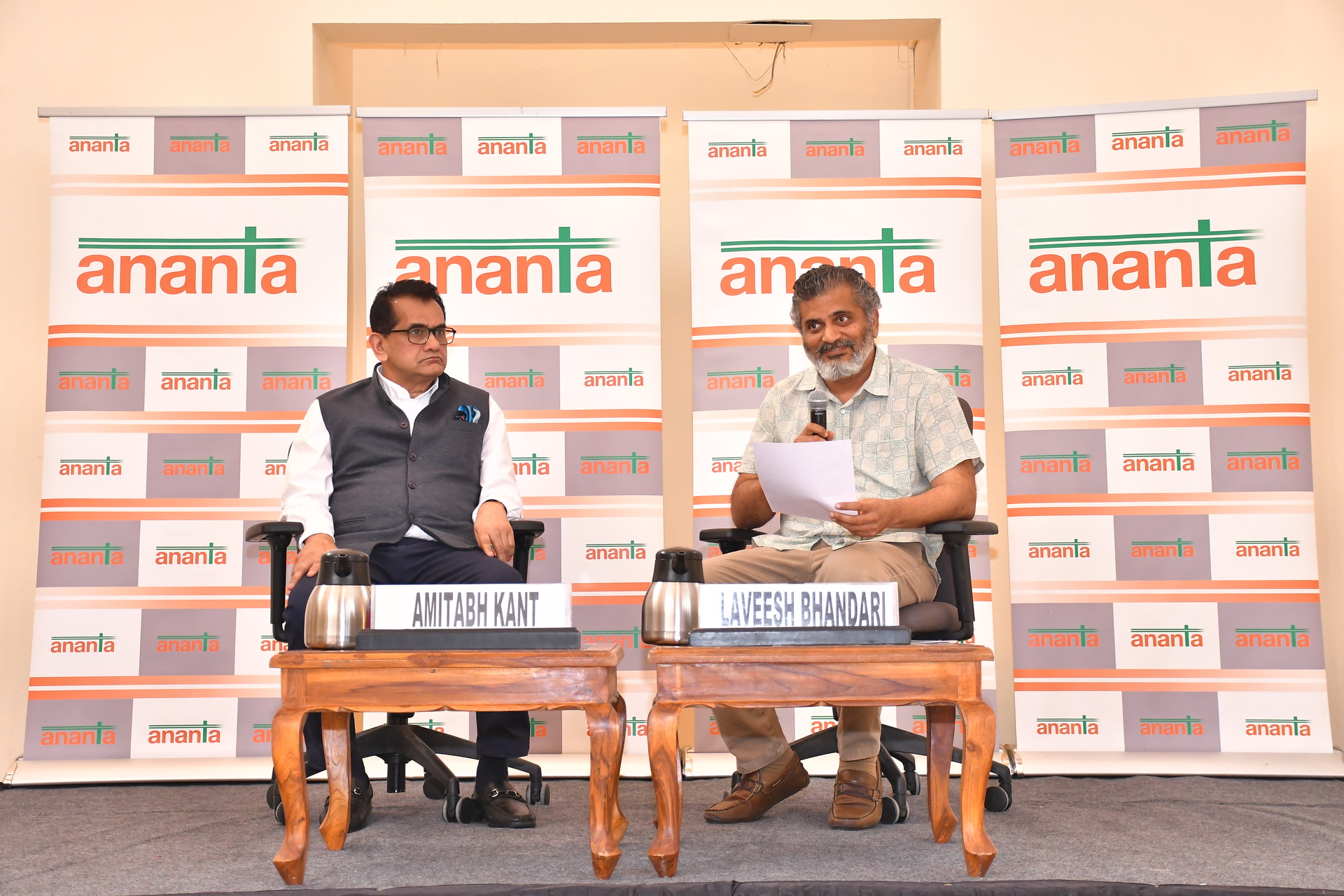
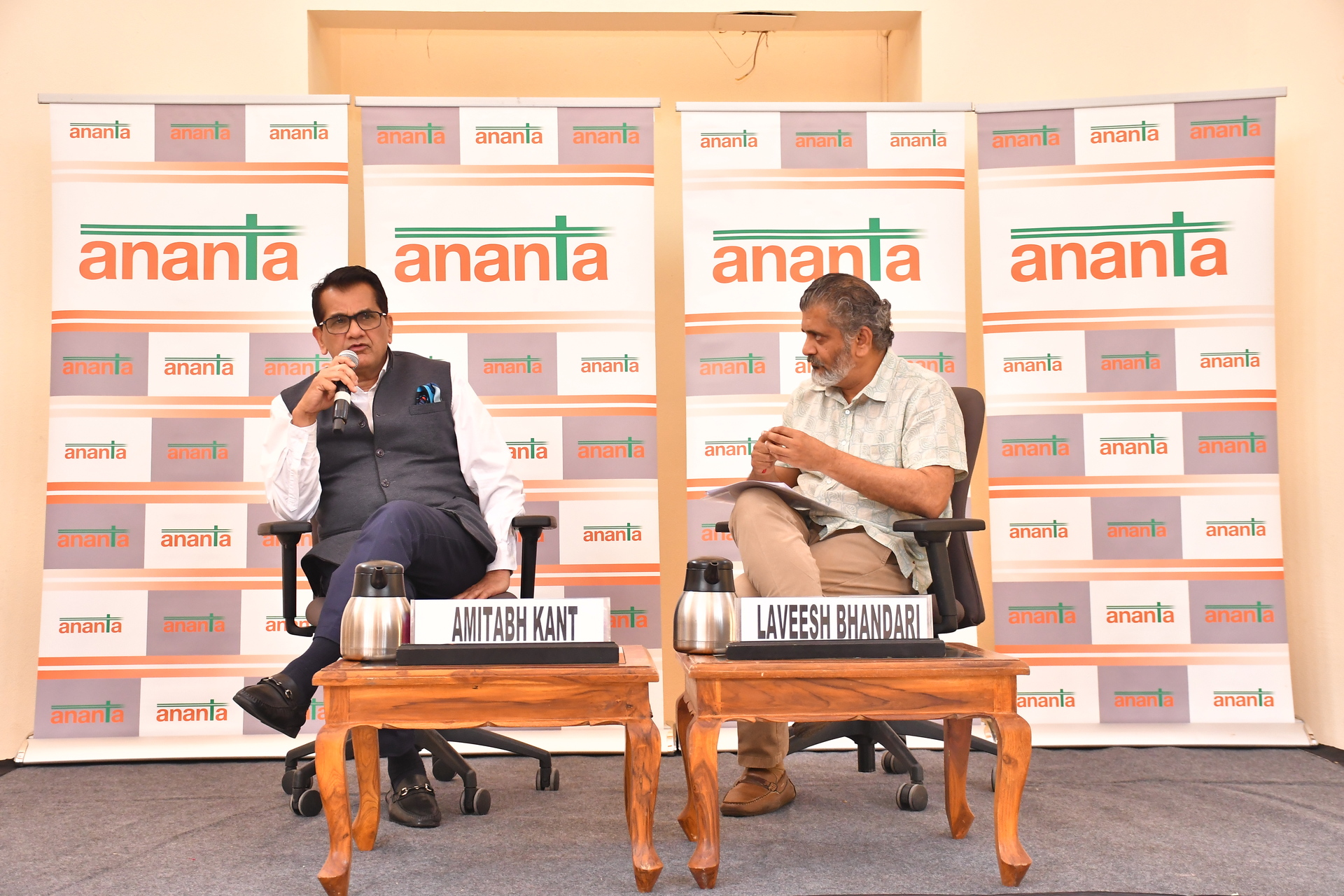
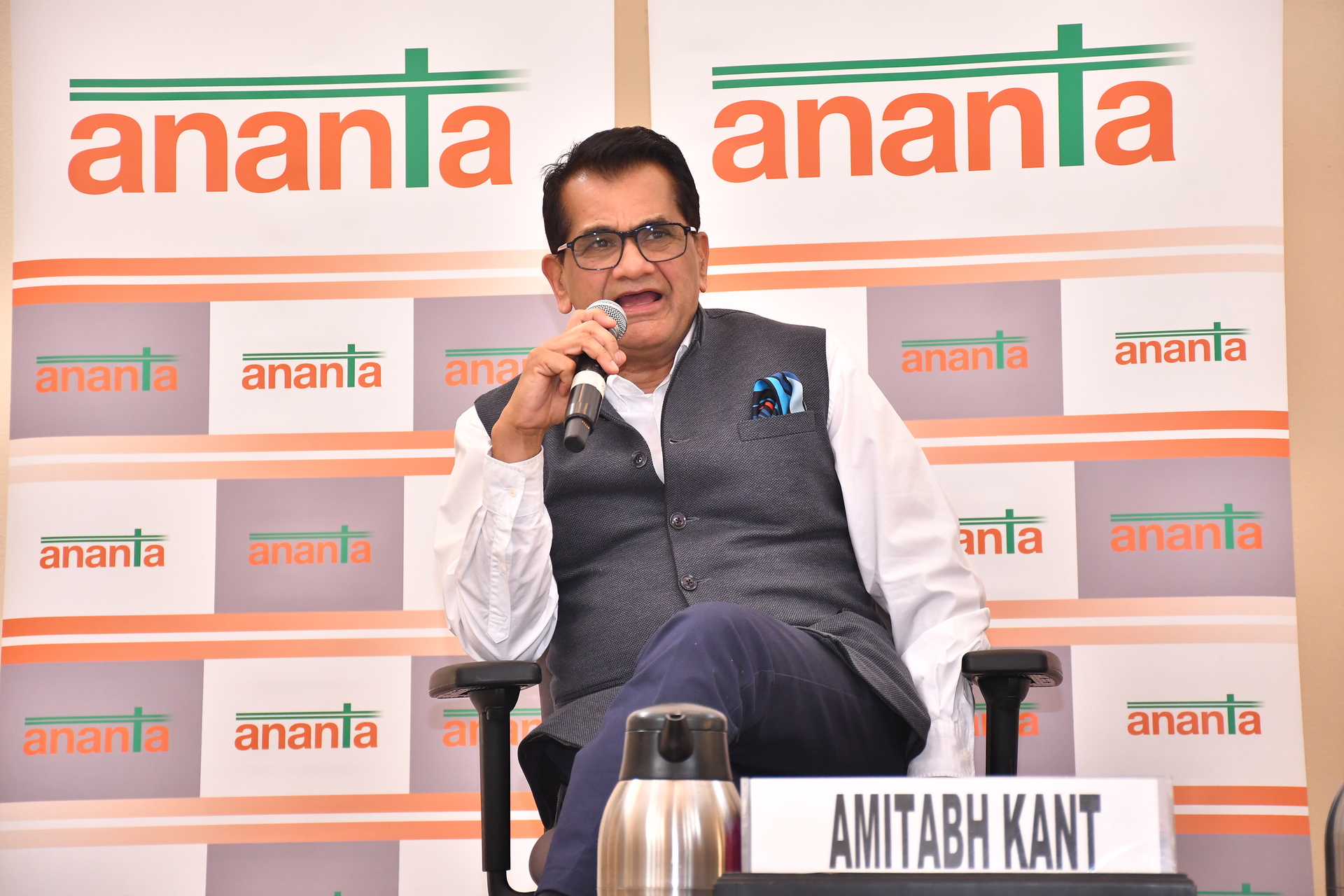

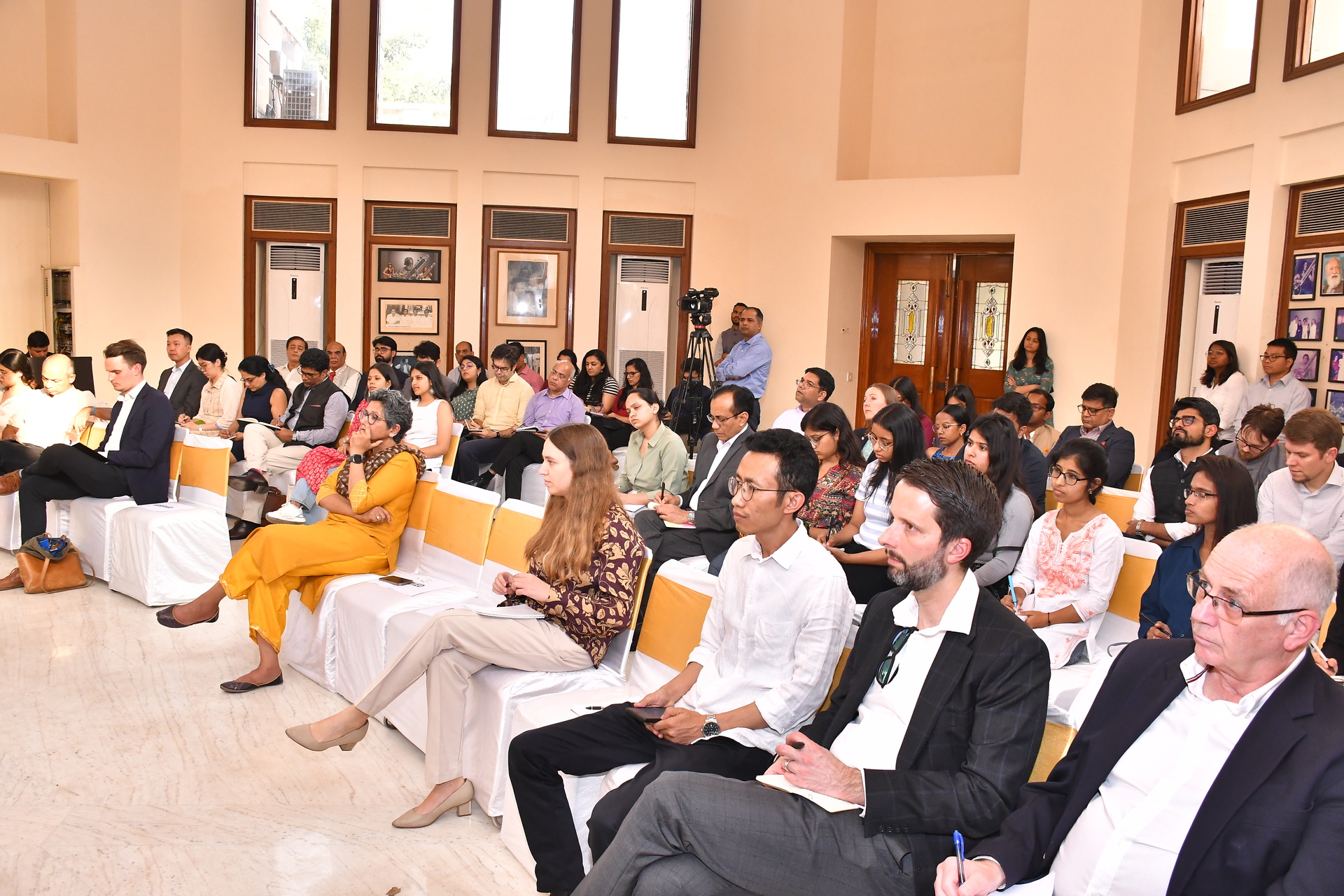

Amitabh Kant, India’s G20 Sherpa, spoke on India’s long-term growth agenda at a discussion held at the Ananta Aspen Centre in New Delhi. The session was moderated by Dr Laveesh Bhandari, President, Centre for Social and Economic Progress.
In his opening remarks, Mr Kant highlighted four streams of changes that have occurred in the last decade. First, structural reforms, including the Goods and Services Tax, the Insolvency and Bankruptcy Code, the Real Estate Regulation Act, ease of doing business and digitization at the central level, healthy competition between states, and a reduction in corporate tax.
Second, the focus on infrastructure creation, reduction in logistics costs, and integration of government departments that has significantly reduced processing time and increased last-mile connectivity.
Third, India’s remarkable digital transformation which has facilitated easier transactions, wealth creation, and a reduction in customer acquisition costs.
Finally, India’s rapid development of renewable energy assets and their increased accessibility. He further added that this was led by the private sector based on tripartite cooperation between the central government, the state governments, and the Reserve Bank of India. The large-scale shift from firewood to cooking gas and electrification of households is also remarkable.
Mr Kant noted that decarbonisation of India’s hard-to-abate sector continues to be a challenge. To mitigate the same, India should aim to be a net exporter of clean energy, the biggest producer of green hydrogen, and a leading manufacturer of electrolysers.
He emphasised India’s unique chance to spearhead the energy transition and green mobility by aiming to become a 100 percent EV nation by 2035. He pointed out that failure to swiftly prioritise the transition could cost India its lead in vehicle manufacturing. Access to critical minerals might not pose a challenge, with lithium, cobalt, and nickel being readily available. A majority of the battery-making process is indigenous, and there is no shortage of minerals.
He emphasised that sustainable urbanisation, particularly led by states, is critical for India’s growth. This model should prioritise accessible and affordable public transportation, alongside enhancements in social indices like education, health, and nutrition standards
During the discussion, Mr Kant also stated that good governance at the state level is critical for resilient growth. Eastern and southern states, particularly, exhibit potential. At a broader scale, there has been a historical tendency among politicians to favour rural development. It is critical to spread awareness among local politicians about the potential of urbanisation. Noida and Gurugram stand as prime examples of successful urbanisation initiatives.
He noted that the implementation of India’s G20 outcomes is ongoing on both at domestic and international level through taskforces. Greater internal reforms and large-scale manufacturing are needed for India to penetrate global markets. He added that the World Trade Organisation (WTO) is largely ineffective; therefore, bilateral trade agreements are critical for trade growth.
He indicated that India’s G20 negotiations centred on harnessing the strength of emerging markets and recognizing the potential of the Global South. Therefore, the Global South is a primary beneficiary of initiatives such as Digital Public Infrastructure (DPI). He highlighted the critical role of private sector innovation in this bid.
The session ended with a vote of thanks by the moderator.






